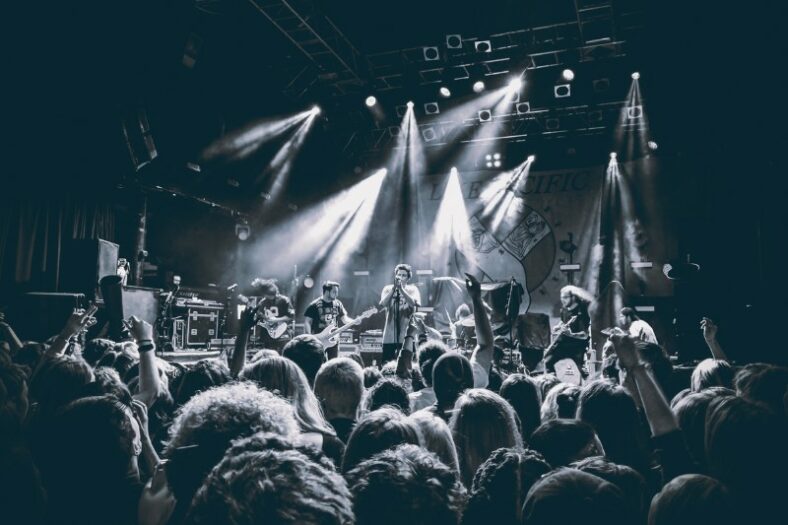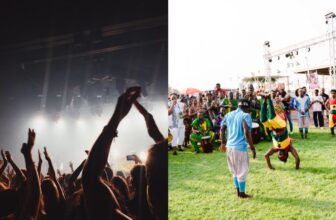How To Get Gigs As A Musician Or Band In (2024)

To get gigs as a musician or band, one must make his or her music bookable, find new contacts in the music industry, take the initiative, and be as professional as possible. Invitations for gigs can be hard to get, so it’s up to musicians to create the necessary conditions to perform live.
It’s possible to get your music out there without performing on stage, but it’s undeniable that getting gigs routinely is essential for a musician’s long-term success. In this article, I have compiled a few guidelines and tips that should help you to get gigs as a musician or band.
Contents
Make Yourself Bookable
For an artist to get booked, such an artist must first be bookable. But what does it mean to be bookable? In simple terms, it’s about putting your music out there, having some interesting output to work with, and—if possible—getting some much-needed buzz.
When people are talking about your music, even if it’s just locally, it’s much easier to find opportunities to perform live. The same applies when venue owners and booking agents find your music impressive: positive hype, combined with at least one solid release, makes for a powerful recipe for getting gigs as a musician or band.
Release Music and Put It Out There
Getting gigs is an art in itself. But without the music, not even the most well-connected artist will ever get a chance to perform on a big stage. The first step for getting gigs as a musician or band is to release great music, upload it to as many platforms as possible, and have a solid promotion plan.
Booking agents and venue owners prefer hiring an artist who has at least one quality EP on Spotify and other streaming services than taking a chance on an unknown newcomer with zero releases on the Internet.
Releasing music isn’t just about the music: it also shows booking agents and venue owners that an artist is serious about his or her work and is putting in the time to make his or her career work.
Create an EPK
Releasing music is what allows an artist to present his or her work to the world. But when it comes to music-industry insiders, releasing music is sometimes not enough. Booking agents and venue owners are flooded with pitches and requests daily, so they need to have a convenient way to make informed choices as fast as possible. That’s why having an EPK is so important.
EPK stands for Electronic Press Kit, and it’s sort of the music-industry equivalent of a business card. It’s an overview of a musician or band’s work that synthesizes their entire story (from releases and past gigs to a bio and some press photos) in one single place. If you’re not sure about what should be included in your project’s EPK, check out 10 things that should be in an EPK for music.
Get People Talking About Your Project
I’ve already talked about the importance of having hype to get booked. But how does one musician or band get the word out? While artists can’t always control how famous or acclaimed they are, there are at least two things they can do to get the buzz started:
Contact the Press
To some artists, the sheer idea of writing an email to a music magazine, website, or blog sounds crazy. But all major musicians and bands do it, and there’s no reason why you shouldn’t try it too. Most outlets have their email contacts on their websites, and some even incentivize up-and-coming artists to contact them.
Don’t be afraid of rejection. The most important thing is to get the attention of as many people as possible and, luckily, have your music featured in the press.
Build a Strong Social Media Presence
Social media is a blessing for up-and-coming musicians, and it would be silly not to explore the full potential of platforms such as Facebook, Instagram, and TikTok to promote one’s work.
Social media is great for getting hype because it allows musicians to contact the people they want to impress directly, whether via message or by following/commenting on their publications. It’s a networking wonderland, so please be sure to make the most of it.
Find New Contacts in the Music Industry
In the music business, some “friends” are more important than others. Getting gigs as a musician or band requires having strong contacts in the industry, learning how to get such contacts, and knowing what to do with them. Right below, I have listed some clever ways of doing so. For a more thorough guide on networking, you can also check this article.
Attend Music Shows Routinely
Even though much of what happens in the music industry today happens online, meeting someone in person is still more effective than meeting someone on the web. That’s why it’s so important to attend music shows routinely: that’s where everybody has a chance of mingling with superstar musicians, their representatives, and other music-business pros.
It’s not just networking: seeing other musicians perform live is also fun and great for learning about what makes a live performance good or bad. The idea is that, for one to get gigs, one must first attend gigs. That’s where the magic happens, so be sure to be as present as possible, especially in your local music scene.
Hang Out with Other Musicians
Going to music shows is a great way of getting to know other musicians. Artists get along pretty easily because they have so many things in common. But more than a lasting friendship, musicians can also share ideas, valuable information, and most importantly, relevant contacts.
If you want to make an impression in the music world, make sure you know as many of the players involved as possible, starting with the people who are in the same condition as you. I assume it’s way easier to connect with a fellow musician than to do so with a business-minded music promoter or bureaucratic record-label executive.
Go to Showcase Festivals
To find strong contacts in the music industry in a less organic but more effective way, why not go to as many showcase festivals as possible? Showcase festivals are just like normal music festivals, except they’re often closed to the public and attended exclusively (or at least mainly) by music industry pros.
In a showcase festival, there’s a great chance whoever’s watching a show next to you has some kind of stake in the music business, so there’s no better place for networking and getting new gigs for your music project or band.
In addition, please check the 10 top marketing strategies for musicians.
Take the Initiative
When I started uploading my own music to the Internet, my friends kept asking me: “When will you perform live?” Back then, I used to tell them that I would only perform live if someone invited me to a show. Little did I know that I was committing a fatal mistake…
Having the right mindset is key to getting gigs as a musician or band, and that involves grabbing the bull by the horns instead of waiting for someone else to notice your work. Spoiler alert? Unless you’ve just reinvented the wheel, nobody will ever pay attention to you!
So, it’s fundamental to take the initiative and assume that performing live is your responsibility. That involves doing things like:
Contacting Venues and Promoters
Just like music outlets, music venues and music promoters often make their contact information public. This means that artists can contact the venues and promoters they find most interesting instead of spending their lives waiting for someone to reach out to them.
I used to think that sending a message to a music venue asking if they were interested in booking my band was awkward at best and rude at worst. But as soon as I started doing it, I realized that many people saw it as a sign of confidence. More importantly, “having the nerve” to take the initiative and send the first message allowed me to get many gigs when I was first starting.
Naturally, this one works best if you’re dealing with local venues and music promoters that enjoy your style of music.
Creating Accounts on Booking Sites
Booking sites are more popular than ever. There’s a growing number of booking agents and venue owners using platforms such as Gigmit to find new interesting music acts, so be sure to join in on the action. The best part is that doing so is as easy as it gets: all you have to do is create an account and wait until the requests start popping.
If you have no idea where to start, here are some of the most popular booking sites of the hour:
• Gigmit
Finding a Booking Agency
Finding a booking agency is a game-changer because it allows you to get a team that will be mainly focused on getting gigs for your music project or band. However, this is something that shouldn’t be rushed (beware of bad deals in the music industry) and that you should only try to do once your music project or band is more established.
Make a Good Impression
No doubt getting that first gig is the hardest part of getting gigs as a musician or band. But because one gig’s hardly enough, artists should always strive to make a good impression when they’re working. If your first live show happens to be disappointing or if you behave badly and unprofessionally, it will be harder to get a second opportunity.
In a nutshell, making a good impression is about being on your best behavior whenever you’re representing your music project or band. This involves not only putting on a good show, but also being nice, helpful, and professional off-stage.
In my experience, booking agents and venue owners talk with each other a lot. And it’s very different when one tells another “That band was amazing and the guys were super cool dudes” and when one tells another “That band was amazing but the guys were super rude.”
Newsflash: nobody likes hanging around arrogant, over-demanding, presumptuous, and lazy people, especially in a professional environment. Sometimes, one finds more gigs by being a relatively-talented super-cool musician than by being a musical genius who’s hard to put up with.
Conclusion
Getting gigs as a musician or band can sound extremely hard at first, but it gets easier and easier with time. Work extra hard to find those first three to six live-performance opportunities and, I guarantee you, you will start getting more and more invitations for gigs in exponentially bigger venues with increasingly larger audiences.
So, don’t forget: remember that getting gigs is your responsibility, don’t be afraid to make the first contact, do your best to find (and maintain) meaningful relationships in the industry, and always be on your best behavior, in and outside the stage.





